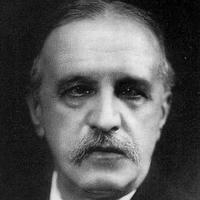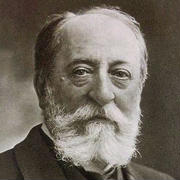Alexandre Pierre François Boëly (19 April 1785, Versailles – 27 December 1858, Paris) was a French composer, organist, and pianist. Born into a family of musicians, Boëly received his first music lessons from his father, Jean François, who was a countertenor at the Sainte-Chapelle in Paris and a composer and harp teacher at the court of Versailles. He also studied under the Tyrolian pianist Ignaz Ladurner, who introduced him to the work of Bach and Haydn, which Boëly would champion in his adult career. Besides mastering the piano and organ, Boëly was also a talented violist.
As the Romantic movement swept through Europe during the 19th century, Boëly was shunned by the official mainstream of musical life in Paris because of his Classical sensibilities and his "elitist" fidelity to writing serious music. Boëly regarded with distaste the music that was written and feted by many of his contemporaries. The most popular standards during the Napoleonic period were compositions that swelled with patriotism or operatic intensity. Entrenching his reactionary reputation, he used his appointment as organist at Saint Germain l'Auxerrois in 1840 to promote the works of dead composers who were then only scantily appreciated by the public. These included Frescobaldi, Couperin, and most importantly of all, the supposedly impenetrable, unplayable Bach.
Such efforts did not win Boëly popular favor, for he was dismissed from his position in 1851 for the "austerity" of his playing. He died a simple piano teacher, but not without enjoying the respect and confidence of a close circle of friends which included Marie Bigot, Pierre Baillot, Friedrich Kalkbrenner, and Johann Baptist Cramer.
Although Boëly was and remains largely unknown to the public, this does not diminish the part he played in the flourishing development of French music during the 19th century. He left behind an impressive oeuvre which numbers about 300 individual works, especially in the genres of chamber music and instrumental pieces for piano or organ. These include twelve books of practice-pieces of different styles and four books for organ with pedals or piano three hands. In Boëly's old age, he was sought out by two rising young artists, César Franck and Camille Saint-Saëns, who revered him as a guardian of a noble and pure classical organ tradition.






